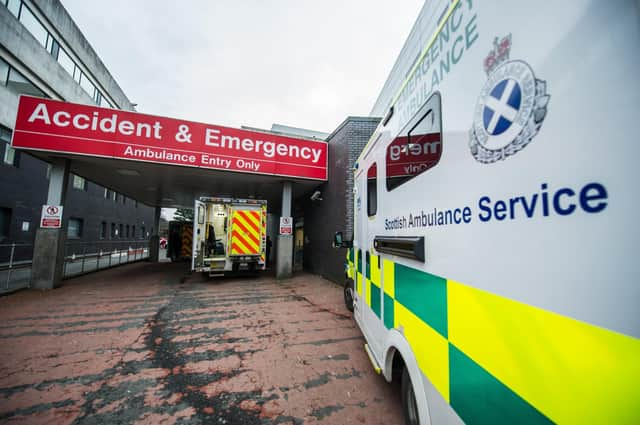Scottish ambulance strikes: Union workers set to strike over guaranteed rest breaks


Scotland’s ambulance workers are set to conduct “devastating” strikes in a bid to secure guaranteed breaks during shifts.
More than 90 per cent of GMB Scotland members working within the Scottish Ambulance Service (SAS) voted to undertake the strike action, which will see huge disruption across NHS Scotland’s emergency medical services.
Advertisement
Hide AdAdvertisement
Hide AdKaren Leonard, GMB Scotland organiser in the ambulance service, said ambulance crews are entitled to breaks totalling 40 minutes in a 12-hour shift but are often being asked to work through after being called to emergencies.:
“The failure to ensure crews are properly rested has been an increasing cause of concern for years,” said Ms Leonard.
“Crews were once told it was because of Covid, now turnaround times at hospitals are being blamed. Enough is enough.
“Breaks are not a luxury but a necessity and it is beyond time for managers to understand that and ensure crews are properly rested when asked to drive under blue-lights, diagnose patients and administer drugs.”
SAS members previously threatened to strike last year over a proposed pay offer from the Scottish Government, but backed down after then health secretary Humza Yousaf offered a better deal.
The disruption to Scotland’s health service would likely be similar to that seen in England during strikes south of the border last year.
Demand for services went down massively during the strikes due to public awareness of the industrial action, but that led to a backlog of increasingly ill patients needing to be transferred to hospital once the strike ended.
The strikes in England were further mitigated by the British Army driving ambulances, and by union members providing “life and limb cover” and still responding to the most serious emergencies.
Advertisement
Hide AdAdvertisement
Hide AdScottish Conservative shadow health secretary Dr Sandesh Gulhane MSP, said the prospect of ambulance crews striking is “deeply concerning”.
“Strike action will only make this winter even more devastating for patients, which is why everything must be done to prevent them going ahead.”
Scottish Labour Health spokesperson Jackie Baillie said “it beggars belief” that the Scottish Government is “forcing ambulance workers to strike to secure such basic rights”.
“These rests are not just essential for staff wellbeing, but for patient safety too,” Ms Baillie added.
A spokesperson for SAS said: "We recognise the pressure facing our staff as a result of wider NHS demand and delays in handovers at hospitals.
“We know that, on occasion, ambulance crews like many other NHS staff are not able to take breaks in optimum conditions, which is why we are working in partnership with trade union colleagues to update the current rest break policy and procedures to ensure we enable staff to take breaks in a timely manner.”
A spokesperson for the Scottish Government said: “The Ambulance Service have assured us that they are continuing to work closely with staff representatives to put in place operational reforms to enable staff to take rest breaks as quickly as possible.
“The Health Secretary met recently with GMB to discuss this issue. We strongly encourage GMB colleagues to continue to work with the ambulance service in order to arrive at workable long-term solutions.”
Comments
Want to join the conversation? Please or to comment on this article.